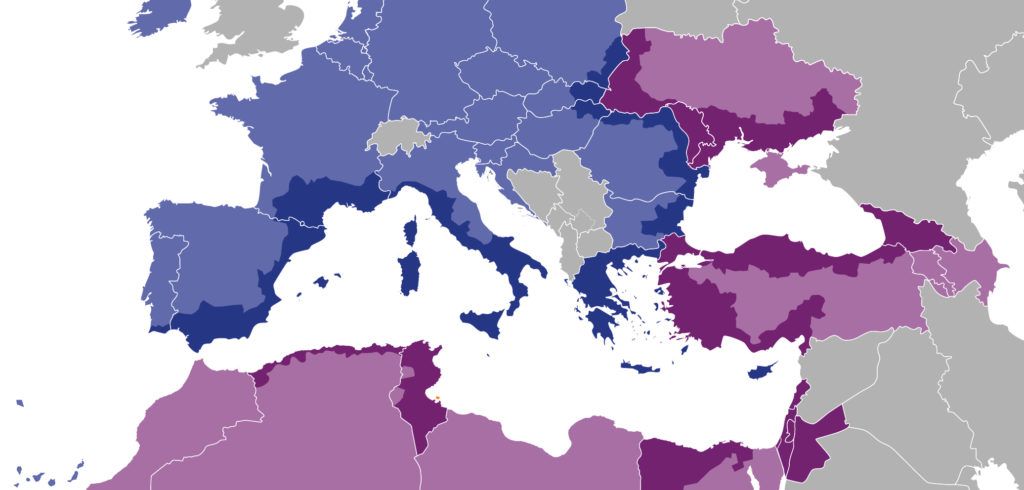The Eastern partners journey towards a greener neighbourhood and more
2022 has ended with the great news on the adoption of the seven active Interreg NEXT programmes. Now it’s time to get to know them better. Our journey starts by taking a closer look at two programmes of the Interreg NEXT family that can be fairly considered as “giants” of CBC in the east, one because of its geographical scope, and the other in terms its financial allocation. Meet the Interreg VI-B NEXT Black Sea Basin and the Interreg NEXT Poland-Ukraine programmes!
Black Sea Basin
“The Black Sea Basin Programme is a platform where regional actors get together and contribute to the sustainable management of resources, for the benefit of local citizens” says the Programme Manager, Laura Bobarnac. In the new programming period, the Interreg VI-B NEXT Black Sea Basin (BSB) Programme will keep pursuing its key objectives through regular and small-scale projects for a total allocation of €72 million. Combining three funds (ERDF, NDICI and IPA) and involving eight countries – Bulgaria, Romania, Greece, Türkiye, the Republic of Moldova, Ukraine, Georgia and Armenia – BSB will further deepen the cross-border cooperation in the transnational configuration successfully built over the two previous periods (ENPI and ENI CBC).
The two Policy Objectives indicated by the European Commission – PO1 “A smarter Europe and its neighbourhood” and PO2 “A greener low-carbon Europe and its neighbourhood” – have been translated by the programme into different specific objectives. For what concern PO1, the programme will work for research and the enhancement of innovation capacities.
When it comes to a greener Europe and its neighbourhood (PO2), the attention will be on climate change adaptation and disaster risk prevention, at the same time working for the protection and preservation of nature, biodiversity, and green infrastructure.
More information will soon be available concerning calls for projects. Consult the website: https://blacksea-cbc.net/interreg-next-bsb-2021-2027
Poland-Ukraine
“The main challenge for our programme will be the rebuilding of Ukraine and the cross-border cooperation after the war!” says Malgorgata Chetko, Head of Programming Unit East, Territorial Cooperation Department, Ministry of Development Funds and Regional Policy of Poland.
A remarkable financial allocation of €170 million is available to continue the cooperation and to strengthen ties between organizations and citizens of the Polish and Ukrainian border areas. In the coming years stakeholders from both sides will receive programme support to engage in a variety of activities, from rebuilding health infrastructure, to restore social facilities or heritage sites. One of the key challenges of the new programme will be the reconstruction of Ukraine, accelerating its path into the EU. And the diversity of fields of intervention is well highlighted considering the choices the programme has made in terms of specific objectives.
Engaging heavily towards a greener, low-carbon future (Policy Objective 2), Poland-Ukraine will focus on promoting climate change adaptation, risk prevention and disaster resilience and on dealing with issues related to the access to water. Activities will also address the enhancement of biodiversity, green infrastructure in urban environment and the reduction of pollution. When it comes to the promotion of a more social Europe and its neighbourhood (Policy Objective 4), the programme will concentrate on ensuring equal access to health care and enhancing the role of culture and sustainable development.
Interreg NEXT Poland-Ukraine is also engaged towards Interreg-specific objectives when it comes to a better cooperation governance (ISO1), particularly to enhance the efficiency of public administration and the building of mutual trust by encouraging the role of civil society actors in reforming processes. Finally, the Poland-Ukraine programme will be active pursuing a safer and more secure Europe and its neighbourhood (ISO2), thanks to a combination of activities to be determined at project level.
For more information on the programme, consult the website: https://pbu2020.eu/en/news2021-2027
We will continue our journey along the Eastern Neighbourhood next time, presenting three more programmes of the new programming cycle with our February edition. Stay tuned!
